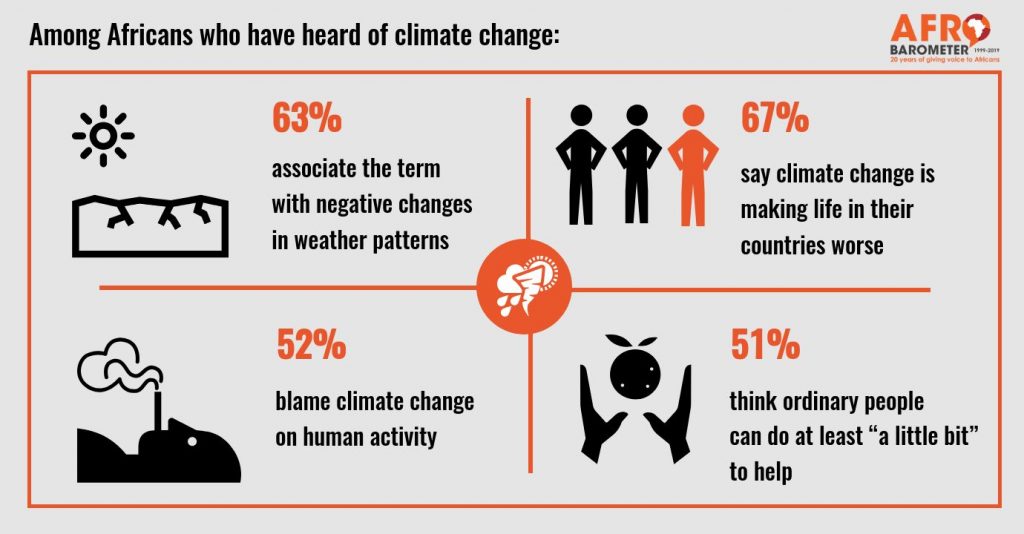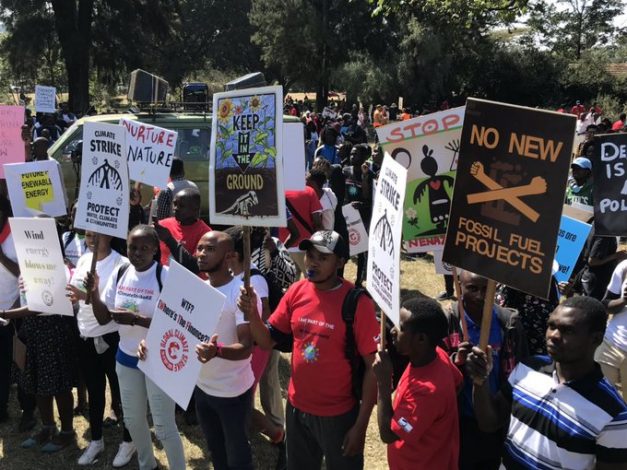The Global Climate Strike, the third in a worldwide series of climate rallies organized by school students, and led by 16-year-old Greta Thunberg took place on Friday.
In Kenya, various organizations joined thousands of citizens in Nairobi for the #ClimateAction march from Uhuru Park to the Ministry of Environment and Forestry where they presented a petition on Climate Action as a matter of emergency.
According to the petition, it is demanding that the government should Declare Climate Emergency as a way to educate the public; end all financing and support of fossil fuels and climate destruction; allow renewable energy to flourish among others.
The Petition is part of an international youth campaign to create a series of petitions from 100+ petition starters with 1,000,000+ signatories.
Finally at the @theenvironment ministry where Hon. Mohammed Elmi the Chief Administrative Secretary for Environment and Forestly and the Principal Secretary Betty Maina received the #ClimatestrikeKE petition @wareisjoe @350 @mohadow @CAREClimate @GemMaina18 @EnergyMinK pic.twitter.com/pOPQ29gEoW
— Sophie Mbugua (@Smbuguah) September 20, 2019
We young people have decided to change the face of humanity.🌏If you don't ACT, We Will!.
Leading a climate strike and tree planting at Ruiru Primary @HotpointKenya @KCDF @GGI_Kenya @alekograph4 @350 @350Africa @GretaThunberg@NamugerwaLeah#ClimateStrike #ClimateStrikes #Kenya🇰🇪 pic.twitter.com/zXhkccMpWy— Elizabeth Wathuti 🇰🇪 (@lizwathuti) September 20, 2019
Stella Nderitu, Founder Dada Power Initiative, said her organisation joined the march because “I remain hopeful about remedying Climate Change mostly because of the commitment by our members who showed up for the ClimateStrike in Kenya to demand Climate Justice Now.”
But education efforts shouldn’t stop with building awareness and understanding of the
problem. Nearly three-quarters of those who are already aware of climate change agree
that it needs to be stopped, but citizens are less confident about their own ability to make a
difference. Advocacy should also aim to build popular understanding of how ordinary
citizens can respond effectively to this challenge by taking individual and collective actions
that can enhance the capacity for prevention, early warning, adaptation, and mitigation. – Afrobarometer
In Africa, perceptions of climate change are as varied as its weather according to Afrobarometer, a pan-African research network that conducts public attitude surveys on democracy, governance, economic conditions in Africa.
“Among Africans who have heard of climate change, 71% say it needs to be stopped, but only half (51%) think ordinary people can help stop it. Clearly, many countries are seeing changes in climate and weather patterns that are hurting farmers and herders, most often through worsening drought.”

Afrobarometer’s latest findings in the Experience and awareness of climate change in Africa report, “In some of the most severely affected countries, including Uganda, Malawi, and Cabo Verde, substantial majorities of the population are familiar with the term “climate change.” Overall, nearly six in 10 Africans have at least heard of the phenomenon.
But in others, awareness of climate change is much less widespread. These include some of the continent’s most influential countries, such as Ghana, Nigeria, and South Africa, as well as places where changing weather patterns are playing havoc with agriculture, as in Lesotho. A bare majority are familiar with the concept in Nigeria and Ghana, and fewer than half of citizens have heard of climate change in five other countries.”
The United Nations has intensified demand for climate action in its Sustainable Development Goal No. 13: “Take urgent action to combat climate change and its impacts,” calling on countries to integrate climate change measures into national policies and strategies, strengthen resilience to climate-related hazards and natural disasters, and build awareness and capacity for early warning and impact reduction.
In 2016, many countries pledged carbon emissions caps to limit warming to 1.5 degrees Celsius or below as per the Paris Agreement.
The Afrobarometer report concludes that, “Given Africa’s low greenhouse gas emissions but high vulnerability to climate change, and its responsibility for designing its own development future, such consensus-building measures for urgent climate action may be among the most important contributions that African nations can take to the UN Climate Action Summit in New York on September 23.”
Demand for #Climatefinance has been critical for developing nations. It’s one of the agenda for #Africa during the #2019UNSG summit in New York. #ClimateStrikeKE @CAREClimate @GemMaina18 @350 #COP25 pic.twitter.com/31Nn0oBdr9
— Sophie Mbugua (@Smbuguah) September 20, 2019




